afterLoad (456.22KB) (1.09ms)
afterInitialise (1.27MB) (35.52ms)
afterRoute (874.22KB) (16.05ms)
beforeRenderComponent com_tags (21.13KB) (3.45ms)
afterRenderComponent com_tags (3.04MB) (312ms)
afterDispatch (65.05KB) (8.31ms)
beforeRenderRawModule mod_articles_category (READ MORE...) (372.12KB) (17.12ms)
Before Access::preloadComponents (all components) (120.7KB) (3.68ms)
After Access::preloadComponents (all components) (103.05KB) (2.8ms)
Before Access::getAssetRules (id:8 name:com_content) (840B) (18μs)
After Access::getAssetRules (id:8 name:com_content) (7.05KB) (37μs)
afterRenderRawModule mod_articles_category (READ MORE...) (10.58KB) (82.27ms)
beforeRenderRawModule mod_tags_popular (Search) (4.81KB) (23μs)
afterRenderRawModule mod_tags_popular (Search) (1.85KB) (44.29ms)
beforeRenderRawModule mod_custom (Remember to download Heart Healthy Seniors) (816B) (27μs)
afterRenderRawModule mod_custom (Remember to download Heart Healthy Seniors) (4.86KB) (203μs)
beforeRenderRawModule mod_custom (Get additionel and more detailed knowledge ) (752B) (24μs)
afterRenderRawModule mod_custom (Get additionel and more detailed knowledge ) (1.67KB) (28μs)
beforeRenderRawModule mod_custom (BOOST YOUR IMMUNE DEFENSE) (608B) (10μs)
afterRenderRawModule mod_custom (BOOST YOUR IMMUNE DEFENSE) (928B) (22μs)
beforeRenderRawModule mod_custom (Are you taking supplements) (736B) (8μs)
afterRenderRawModule mod_custom (Are you taking supplements) (1.03KB) (18μs)
beforeRenderRawModule mod_custom (Antiaging) (720B) (8μs)
afterRenderRawModule mod_custom (Antiaging) (1.02KB) (24μs)
beforeRenderRawModule mod_custom (Exercise) (720B) (9μs)
afterRenderRawModule mod_custom (Exercise) (1.02KB) (17μs)
beforeRenderRawModule mod_custom (Check this before you buy a Q10 product) (752B) (8μs)
afterRenderRawModule mod_custom (Check this before you buy a Q10 product) (944B) (16μs)
beforeRenderRawModule mod_custom (Chronic fatigue tied Alan to his bed but Q10 capsules saved him:) (245.53KB) (9.29ms)
afterRenderRawModule mod_custom (Chronic fatigue tied Alan to his bed but Q10 capsules saved him:) (960B) (42μs)
beforeRenderModule mod_custom (Chronic fatigue tied Alan to his bed but Q10 capsules saved him:) (768B) (4μs)
afterRenderModule mod_custom (Chronic fatigue tied Alan to his bed but Q10 capsules saved him:) (1.3KB) (1.19ms)
beforeRenderRawModule mod_custom (Cholesterol-lowering without side effects:) (368B) (24μs)
afterRenderRawModule mod_custom (Cholesterol-lowering without side effects:) (2.19KB) (42μs)
beforeRenderModule mod_custom (Cholesterol-lowering without side effects:) (752B) (3μs)
afterRenderModule mod_custom (Cholesterol-lowering without side effects:) (1.28KB) (42μs)
beforeRenderModule mod_articles_category (READ MORE...) (21.32KB) (1.57ms)
afterRenderModule mod_articles_category (READ MORE...) (1.25KB) (56μs)
beforeRenderModule mod_tags_popular (Search) (5.17KB) (13μs)
afterRenderModule mod_tags_popular (Search) (1.27KB) (24μs)
beforeRenderModule mod_custom (Remember to download Heart Healthy Seniors) (1.17KB) (11μs)
afterRenderModule mod_custom (Remember to download Heart Healthy Seniors) (1.3KB) (21μs)
beforeRenderModule mod_custom (Get additionel and more detailed knowledge ) (368B) (9μs)
afterRenderModule mod_custom (Get additionel and more detailed knowledge ) (1.3KB) (19μs)
beforeRenderModule mod_custom (BOOST YOUR IMMUNE DEFENSE) (224B) (8μs)
afterRenderModule mod_custom (BOOST YOUR IMMUNE DEFENSE) (1.28KB) (19μs)
beforeRenderModule mod_custom (Are you taking supplements) (352B) (8μs)
afterRenderModule mod_custom (Are you taking supplements) (1.28KB) (19μs)
beforeRenderModule mod_custom (Antiaging) (336B) (8μs)
afterRenderModule mod_custom (Antiaging) (1.27KB) (19μs)
beforeRenderModule mod_custom (Exercise) (336B) (8μs)
afterRenderModule mod_custom (Exercise) (1.25KB) (18μs)
beforeRenderModule mod_custom (Check this before you buy a Q10 product) (352B) (8μs)
afterRenderModule mod_custom (Check this before you buy a Q10 product) (1.28KB) (18μs)
beforeRenderRawModule mod_menu (Main menu-US) (40.94KB) (4.53ms)
afterRenderRawModule mod_menu (Main menu-US) (152.66KB) (4.32ms)
beforeRenderModule mod_menu (Main menu-US) (720B) (4μs)
afterRenderModule mod_menu (Main menu-US) (4.36KB) (54μs)
beforeRenderRawModule mod_languages (Sprogskift) (3.44KB) (17μs)
afterRenderRawModule mod_languages (Sprogskift) (26.77KB) (5.24ms)
beforeRenderModule mod_languages (Sprogskift) (720B) (5μs)
afterRenderModule mod_languages (Sprogskift) (5.31KB) (19μs)
beforeRenderRawModule mod_finder () (6.34KB) (10μs)
afterRenderRawModule mod_finder () (150.16KB) (5.93ms)
beforeRenderModule mod_finder () (704B) (4μs)
afterRenderModule mod_finder () (5.79KB) (30μs)
beforeRenderRawModule mod_custom () (6.62KB) (123μs)
afterRenderRawModule mod_custom () (22.66KB) (3.21ms)
beforeRenderModule mod_custom () (704B) (6μs)
afterRenderModule mod_custom () (1.23KB) (48μs)
beforeRenderRawModule mod_menu (Main menu-US) (5.07KB) (92μs)
afterRenderRawModule mod_menu (Main menu-US) (5.8KB) (574μs)
beforeRenderModule mod_menu (Main menu-US) (720B) (3μs)
afterRenderModule mod_menu (Main menu-US) (1.25KB) (41μs)
beforeRenderRawModule mod_languages (Sprogskift Mobil) (912B) (14μs)
afterRenderRawModule mod_languages (Sprogskift Mobil) (3.89KB) (2.62ms)
beforeRenderModule mod_languages (Sprogskift Mobil) (720B) (5μs)
afterRenderModule mod_languages (Sprogskift Mobil) (1.27KB) (34μs)
beforeRenderRawModule mod_finder () (2.3KB) (11μs)
afterRenderRawModule mod_finder () (6.29KB) (4.69ms)
beforeRenderModule mod_finder () (704B) (4μs)
afterRenderModule mod_finder () (1.23KB) (48μs)
beforeRenderRawModule mod_custom () (8.66KB) (160μs)
afterRenderRawModule mod_custom () (904B) (123μs)
beforeRenderModule mod_custom () (704B) (3μs)
afterRenderModule mod_custom () (2.43KB) (22μs)
beforeRenderRawModule mod_custom () (688B) (70μs)
afterRenderRawModule mod_custom () (896B) (83μs)
beforeRenderModule mod_custom () (704B) (2μs)
afterRenderModule mod_custom () (2.71KB) (20μs)
afterRender (468.21KB) (16.69ms)
| 1 x afterRenderComponent com_tags (3.04MB) (52.96%) | 311.81ms |
| 1 x afterRenderRawModule mod_articles_category (READ MORE...) (10.58KB) (13.97%) | 82.27ms |
| 1 x afterRenderRawModule mod_tags_popular (Search) (1.85KB) (7.52%) | 44.29ms |
| 1 x afterInitialise (1.27MB) (6.03%) | 35.52ms |
| 1 x beforeRenderRawModule mod_articles_category (READ MORE...) (372.12KB) (2.91%) | 17.12ms |
| 1 x afterRender (468.21KB) (2.83%) | 16.69ms |
| 1 x afterRoute (874.22KB) (2.73%) | 16.05ms |
| 1 x beforeRenderRawModule mod_custom (Chronic fatigue tied Alan to his bed but Q10 capsules saved him:) (245.53KB) (1.58%) | 9.29ms |
| 1 x afterDispatch (65.05KB) (1.41%) | 8.31ms |
| 1 x afterRenderRawModule mod_finder () (150.16KB) (1.01%) | 5.93ms |
| 1 x afterRenderRawModule mod_languages (Sprogskift) (26.77KB) (0.89%) | 5.24ms |
| 1 x afterRenderRawModule mod_finder () (6.29KB) (0.8%) | 4.69ms |
| 1 x beforeRenderRawModule mod_menu (Main menu-US) (40.94KB) (0.77%) | 4.53ms |
| 1 x afterRenderRawModule mod_menu (Main menu-US) (152.66KB) (0.73%) | 4.32ms |
| 1 x Before Access::preloadComponents (all components) (120.7KB) (0.62%) | 3.68ms |
| 1 x beforeRenderComponent com_tags (21.13KB) (0.59%) | 3.45ms |
| 1 x afterRenderRawModule mod_custom () (22.66KB) (0.55%) | 3.21ms |
| 1 x After Access::preloadComponents (all components) (103.05KB) (0.47%) | 2.80ms |
| 1 x afterRenderRawModule mod_languages (Sprogskift Mobil) (3.89KB) (0.44%) | 2.62ms |
| 1 x beforeRenderModule mod_articles_category (READ MORE...) (21.32KB) (0.27%) | 1.57ms |
| 1 x afterRenderModule mod_custom (Chronic fatigue tied Alan to his bed but Q10 capsules saved him:) (1.3KB) (0.2%) | 1.19ms |
| 1 x afterLoad (456.22KB) (0.18%) | 1.09ms |
| 1 x afterRenderRawModule mod_menu (Main menu-US) (5.8KB) (0.1%) | 574μs |
| 1 x afterRenderRawModule mod_custom (Remember to download Heart Healthy Seniors) (4.86KB) (0.03%) | 203μs |
| 1 x beforeRenderRawModule mod_custom () (8.66KB) (0.03%) | 160μs |
| 1 x beforeRenderRawModule mod_custom () (6.62KB) (0.02%) | 123μs |
| 1 x afterRenderRawModule mod_custom () (904B) (0.02%) | 123μs |
| 1 x beforeRenderRawModule mod_menu (Main menu-US) (5.07KB) (0.02%) | 92μs |
| 1 x afterRenderRawModule mod_custom () (896B) (0.01%) | 83μs |
| 1 x beforeRenderRawModule mod_custom () (688B) (0.01%) | 70μs |
| 1 x afterRenderModule mod_articles_category (READ MORE...) (1.25KB) (0.01%) | 56μs |
| 1 x afterRenderModule mod_menu (Main menu-US) (4.36KB) (0.01%) | 54μs |
| 1 x afterRenderModule mod_custom () (1.23KB) (0.01%) | 48μs |
| 1 x afterRenderModule mod_finder () (1.23KB) (0.01%) | 48μs |
| 1 x afterRenderRawModule mod_custom (Chronic fatigue tied Alan to his bed but Q10 capsules saved him:) (960B) (0.01%) | 42μs |
| 1 x afterRenderRawModule mod_custom (Cholesterol-lowering without side effects:) (2.19KB) (0.01%) | 42μs |
| 1 x afterRenderModule mod_custom (Cholesterol-lowering without side effects:) (1.28KB) (0.01%) | 42μs |
| 1 x afterRenderModule mod_menu (Main menu-US) (1.25KB) (0.01%) | 41μs |
| 1 x After Access::getAssetRules (id:8 name:com_content) (7.05KB) (0.01%) | 37μs |
| 1 x afterRenderModule mod_languages (Sprogskift Mobil) (1.27KB) (0.01%) | 34μs |
| 1 x afterRenderModule mod_finder () (5.79KB) (0.01%) | 30μs |
| 1 x afterRenderRawModule mod_custom (Get additionel and more detailed knowledge ) (1.67KB) (0%) | 28μs |
| 1 x beforeRenderRawModule mod_custom (Remember to download Heart Healthy Seniors) (816B) (0%) | 27μs |
| 1 x beforeRenderRawModule mod_custom (Get additionel and more detailed knowledge ) (752B) (0%) | 24μs |
| 1 x afterRenderRawModule mod_custom (Antiaging) (1.02KB) (0%) | 24μs |
| 1 x beforeRenderRawModule mod_custom (Cholesterol-lowering without side effects:) (368B) (0%) | 24μs |
| 1 x afterRenderModule mod_tags_popular (Search) (1.27KB) (0%) | 24μs |
| 1 x beforeRenderRawModule mod_tags_popular (Search) (4.81KB) (0%) | 23μs |
| 1 x afterRenderRawModule mod_custom (BOOST YOUR IMMUNE DEFENSE) (928B) (0%) | 22μs |
| 1 x afterRenderModule mod_custom () (2.43KB) (0%) | 22μs |
| 1 x afterRenderModule mod_custom (Remember to download Heart Healthy Seniors) (1.3KB) (0%) | 21μs |
| 1 x afterRenderModule mod_custom () (2.71KB) (0%) | 20μs |
| 1 x afterRenderModule mod_custom (BOOST YOUR IMMUNE DEFENSE) (1.28KB) (0%) | 19μs |
| 1 x afterRenderModule mod_custom (Are you taking supplements) (1.28KB) (0%) | 19μs |
| 1 x afterRenderModule mod_custom (Antiaging) (1.27KB) (0%) | 19μs |
| 1 x afterRenderModule mod_languages (Sprogskift) (5.31KB) (0%) | 19μs |
| 1 x afterRenderModule mod_custom (Get additionel and more detailed knowledge ) (1.3KB) (0%) | 19μs |
| 1 x Before Access::getAssetRules (id:8 name:com_content) (840B) (0%) | 18μs |
| 1 x afterRenderRawModule mod_custom (Are you taking supplements) (1.03KB) (0%) | 18μs |
| 1 x afterRenderModule mod_custom (Exercise) (1.25KB) (0%) | 18μs |
| 1 x afterRenderModule mod_custom (Check this before you buy a Q10 product) (1.28KB) (0%) | 18μs |
| 1 x beforeRenderRawModule mod_languages (Sprogskift) (3.44KB) (0%) | 17μs |
| 1 x afterRenderRawModule mod_custom (Exercise) (1.02KB) (0%) | 17μs |
| 1 x afterRenderRawModule mod_custom (Check this before you buy a Q10 product) (944B) (0%) | 16μs |
| 1 x beforeRenderRawModule mod_languages (Sprogskift Mobil) (912B) (0%) | 14μs |
| 1 x beforeRenderModule mod_tags_popular (Search) (5.17KB) (0%) | 13μs |
| 1 x beforeRenderModule mod_custom (Remember to download Heart Healthy Seniors) (1.17KB) (0%) | 11μs |
| 3 x beforeRenderModule mod_custom () (704B) (0%) | 11μs |
| 1 x beforeRenderRawModule mod_finder () (2.3KB) (0%) | 11μs |
| 1 x beforeRenderRawModule mod_custom (BOOST YOUR IMMUNE DEFENSE) (608B) (0%) | 10μs |
| 1 x beforeRenderRawModule mod_finder () (6.34KB) (0%) | 10μs |
| 1 x beforeRenderRawModule mod_custom (Exercise) (720B) (0%) | 9μs |
| 1 x beforeRenderModule mod_custom (Get additionel and more detailed knowledge ) (368B) (0%) | 9μs |
| 1 x beforeRenderModule mod_custom (BOOST YOUR IMMUNE DEFENSE) (224B) (0%) | 8μs |
| 1 x beforeRenderModule mod_custom (Exercise) (336B) (0%) | 8μs |
| 1 x beforeRenderModule mod_custom (Check this before you buy a Q10 product) (352B) (0%) | 8μs |
| 2 x beforeRenderModule mod_finder () (704B) (0%) | 8μs |
| 1 x beforeRenderRawModule mod_custom (Are you taking supplements) (736B) (0%) | 8μs |
| 1 x beforeRenderRawModule mod_custom (Antiaging) (720B) (0%) | 8μs |
| 1 x beforeRenderRawModule mod_custom (Check this before you buy a Q10 product) (752B) (0%) | 8μs |
| 1 x beforeRenderModule mod_custom (Are you taking supplements) (352B) (0%) | 8μs |
| 1 x beforeRenderModule mod_custom (Antiaging) (336B) (0%) | 8μs |
| 2 x beforeRenderModule mod_menu (Main menu-US) (720B) (0%) | 7μs |
| 1 x beforeRenderModule mod_languages (Sprogskift) (720B) (0%) | 5μs |
| 1 x beforeRenderModule mod_languages (Sprogskift Mobil) (720B) (0%) | 5μs |
| 1 x beforeRenderModule mod_custom (Chronic fatigue tied Alan to his bed but Q10 capsules saved him:) (768B) (0%) | 4μs |
| 1 x beforeRenderModule mod_custom (Cholesterol-lowering without side effects:) (752B) (0%) | 3μs |
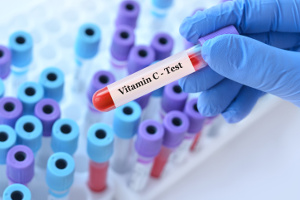 Most people are unaware of vitamin C’s key role in mental health and mood. According to a large population study that is published in Frontiers in Nutrition, having higher levels of vitamin C in the blood is linked to a lower risk of depression. The official dietary recommendations for vitamin C only focus on preventing the potentially lethal deficiency disease called scurvy, and things like stress, ageing, stimulant use, overweight, infections, and chronic illnesses can increase your need for the nutrient.
Most people are unaware of vitamin C’s key role in mental health and mood. According to a large population study that is published in Frontiers in Nutrition, having higher levels of vitamin C in the blood is linked to a lower risk of depression. The official dietary recommendations for vitamin C only focus on preventing the potentially lethal deficiency disease called scurvy, and things like stress, ageing, stimulant use, overweight, infections, and chronic illnesses can increase your need for the nutrient.







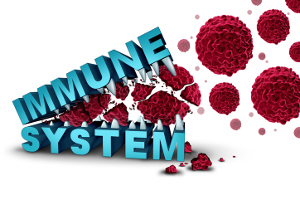 It is not the actual COVID-19 virus that can become lethal. It is the immune system’s overreaction with hyperinflammation and a storm of cytokines that destroys healthy tissue in the lungs, the cardiovascular system, and other places in the body, according to a new article that is published in The Lancet. The capacity of the immune system determines if an infection like COVID-19 is either harmless or life-threatening. For that reason, hygienic measures, masks, isolation, and delayed vaccines are not sufficient. We also need to bolster our immune system against COVID-19 and other pandemics that may occur in the future. Let’s look closer at vitamin C, vitamin D, selenium and zinc, all of which are essential for preventing a well-functioning immune system from going off its rails. What is also worth mentioning is that many people lack these nutrients, especially older people and other exposed groups.
It is not the actual COVID-19 virus that can become lethal. It is the immune system’s overreaction with hyperinflammation and a storm of cytokines that destroys healthy tissue in the lungs, the cardiovascular system, and other places in the body, according to a new article that is published in The Lancet. The capacity of the immune system determines if an infection like COVID-19 is either harmless or life-threatening. For that reason, hygienic measures, masks, isolation, and delayed vaccines are not sufficient. We also need to bolster our immune system against COVID-19 and other pandemics that may occur in the future. Let’s look closer at vitamin C, vitamin D, selenium and zinc, all of which are essential for preventing a well-functioning immune system from going off its rails. What is also worth mentioning is that many people lack these nutrients, especially older people and other exposed groups.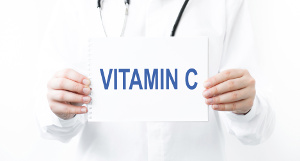 Vitamin C is essential for the immune defense for a number of reasons. According to a review of 12 recent studies, vitamin C administered in sufficiently high doses can prevent severe COVID-19 infections and save lives. The problem is that most people fail to follow the official dietary guidelines for fruit and vegetable consumption, which is why so many people lack vitamin C. Another thing is that health authorities in general are unaware of the health benefits of vitamin C in therapeutic doses, even after 80 years of international research.
Vitamin C is essential for the immune defense for a number of reasons. According to a review of 12 recent studies, vitamin C administered in sufficiently high doses can prevent severe COVID-19 infections and save lives. The problem is that most people fail to follow the official dietary guidelines for fruit and vegetable consumption, which is why so many people lack vitamin C. Another thing is that health authorities in general are unaware of the health benefits of vitamin C in therapeutic doses, even after 80 years of international research.
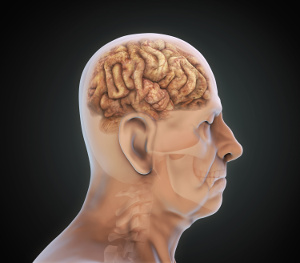 Although the development of Alzheimer’s disease is complex, evidence suggests that vitamin deficiencies play a significant and often overlooked role. This is especially true for vitamin C, which supports neuronal health in multiple ways. Deficiencies in vitamin D, certain B vitamins, vitamin A, and vitamin E also play important roles through various mechanisms. A large meta-analysis comparing vitamin levels in Alzheimer’s patients and healthy individuals found that those with Alzheimer’s had significantly lower levels in the blood.
Although the development of Alzheimer’s disease is complex, evidence suggests that vitamin deficiencies play a significant and often overlooked role. This is especially true for vitamin C, which supports neuronal health in multiple ways. Deficiencies in vitamin D, certain B vitamins, vitamin A, and vitamin E also play important roles through various mechanisms. A large meta-analysis comparing vitamin levels in Alzheimer’s patients and healthy individuals found that those with Alzheimer’s had significantly lower levels in the blood. Impaired sperm quality if one of the major reasons for involuntary infertility. Studies show that oxidative stress, an imbalance between harmful free radicals and protective antioxidants, causes damage to sperm cells. In a review article that is published in Reproductive Sciences, a group of researchers look closer at different molecular mechanisms and how vitamins C, E, selenium, zinc, and coenzyme Q10 plus other antioxidants protect the vulnerable sperm cells.
Impaired sperm quality if one of the major reasons for involuntary infertility. Studies show that oxidative stress, an imbalance between harmful free radicals and protective antioxidants, causes damage to sperm cells. In a review article that is published in Reproductive Sciences, a group of researchers look closer at different molecular mechanisms and how vitamins C, E, selenium, zinc, and coenzyme Q10 plus other antioxidants protect the vulnerable sperm cells. Antioxidants such as vitamin C are able to counteract chromium-6 poisoning, according to a new study that is published in Experimental Biology. Chromium-6 (hexavalent chromium) is used for many industrial purposes, and the different signs of poisoning such as cancer were described in the movie “Erin Brockovich” that is based on a true story. Now, Danish scientists even claim that the threshold level for chromium-6 is far too high and gives a false sense of security. It is vital to avoid exposure to chromium-6 and to get plenty of protective antioxidants. However, we depend on chromium-3 (trivalent chromium) for controlling our blood sugar levels.
Antioxidants such as vitamin C are able to counteract chromium-6 poisoning, according to a new study that is published in Experimental Biology. Chromium-6 (hexavalent chromium) is used for many industrial purposes, and the different signs of poisoning such as cancer were described in the movie “Erin Brockovich” that is based on a true story. Now, Danish scientists even claim that the threshold level for chromium-6 is far too high and gives a false sense of security. It is vital to avoid exposure to chromium-6 and to get plenty of protective antioxidants. However, we depend on chromium-3 (trivalent chromium) for controlling our blood sugar levels. Antioxidants such as vitamins C and E are known to be inversely related to type 1 diabetes, which is an autoimmune disease. In a new Swedish study that is published in Nutrients, scientists have found that vitamin E also protects against type 1,5 diabetes, which is similar to type 1 and type 2 diabetes because it involves both autoimmune reactions re
Antioxidants such as vitamins C and E are known to be inversely related to type 1 diabetes, which is an autoimmune disease. In a new Swedish study that is published in Nutrients, scientists have found that vitamin E also protects against type 1,5 diabetes, which is similar to type 1 and type 2 diabetes because it involves both autoimmune reactions re Veganism is on the rise, and experts have different views on whether or not plant-diets are suited for children. A team of Polish scientists has now discovered that children on vegan diets have low stature and lower bone density than children who eat meat and dairy products. Children on vegan diets also are also more likely to lack amino acids, vitamin B12, vitamin D, vitamin A, iron, selenium, iodine, and the omega-3 fatty acid DHA (docosahexaenoic acid). It is particularly important for growing children to get enough nutrients to support their muscles, bones, brain, and a variety of enzyme processes. Also, children on vegan diets should be given relevant supplements to compensate for their shortcomings.
Veganism is on the rise, and experts have different views on whether or not plant-diets are suited for children. A team of Polish scientists has now discovered that children on vegan diets have low stature and lower bone density than children who eat meat and dairy products. Children on vegan diets also are also more likely to lack amino acids, vitamin B12, vitamin D, vitamin A, iron, selenium, iodine, and the omega-3 fatty acid DHA (docosahexaenoic acid). It is particularly important for growing children to get enough nutrients to support their muscles, bones, brain, and a variety of enzyme processes. Also, children on vegan diets should be given relevant supplements to compensate for their shortcomings. According to Danish research, more than one in three women suspect that their birth control pills cause side effects. Other studies show that birth control pills affect the body’s ability to utilize several different B vitamins, vitamin C, vitamin E, magnesium, selenium, and zinc. The lack of these essential nutrients contributes to a number of common side effects such as fluid retention, blood clots, cancer, and depression.
According to Danish research, more than one in three women suspect that their birth control pills cause side effects. Other studies show that birth control pills affect the body’s ability to utilize several different B vitamins, vitamin C, vitamin E, magnesium, selenium, and zinc. The lack of these essential nutrients contributes to a number of common side effects such as fluid retention, blood clots, cancer, and depression.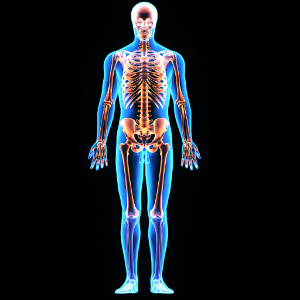
 Main meals are vital for stabilizing blood sugar levels, which makes it easier to concentrate in school. Fruit and vegetables are good sources of vitamin C, folic acid, magnesium, and many other useful nutrients. According to a new British study, children who eat breakfast and lunch and get more fruit and vegetables have better mental health by a number of different parameters. It is also a fact that many children don’t thrive and that lack of nutrients can trigger or exacerbate the problem. For that reason, the researchers call for a better health policy at home and at school to ensure that children get healthy diets, simply because it optimizes their mental well-being and academic potential.
Main meals are vital for stabilizing blood sugar levels, which makes it easier to concentrate in school. Fruit and vegetables are good sources of vitamin C, folic acid, magnesium, and many other useful nutrients. According to a new British study, children who eat breakfast and lunch and get more fruit and vegetables have better mental health by a number of different parameters. It is also a fact that many children don’t thrive and that lack of nutrients can trigger or exacerbate the problem. For that reason, the researchers call for a better health policy at home and at school to ensure that children get healthy diets, simply because it optimizes their mental well-being and academic potential.
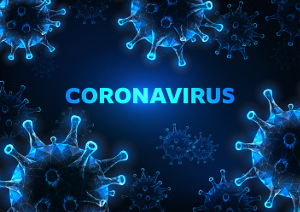 The coronavirus has spread from Wuhan in China to a number of continents, where it has caused massive fear and affected daily life and the global economy. Although most people that get the infection experience a mild course of events, the greatest fear is the potentially life-threatening complications in the respiratory system caused by oxidative stress, which have already taken thousands of human lives. Chinese scientists now call for early intravenous therapy with large doses of vitamin C to prevent oxidative stress and the life-threatening complications that follow in the wake of a derailed immune system. Many researchers also claim that higher intake of vitamin C from dietary sources or supplements help prevent by boosting and regulating the immune system in the upper respiratory tract. The same goes for vitamin D and selenium.
The coronavirus has spread from Wuhan in China to a number of continents, where it has caused massive fear and affected daily life and the global economy. Although most people that get the infection experience a mild course of events, the greatest fear is the potentially life-threatening complications in the respiratory system caused by oxidative stress, which have already taken thousands of human lives. Chinese scientists now call for early intravenous therapy with large doses of vitamin C to prevent oxidative stress and the life-threatening complications that follow in the wake of a derailed immune system. Many researchers also claim that higher intake of vitamin C from dietary sources or supplements help prevent by boosting and regulating the immune system in the upper respiratory tract. The same goes for vitamin D and selenium.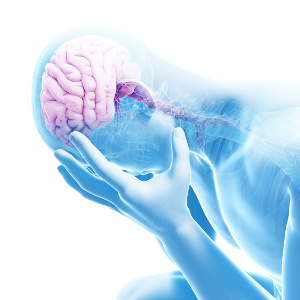 There is a link between depression, dementia and Alzheimer’s disease. Also, it appears that chronic stress contributes to oxidative stress and brain cell damage. In a review article that is published in the science journal Antioxidants, researchers look closer at how oxidative stress affects the brain. They also study how antioxidants can be included in the prevention and treatment of Alzheimer’s disease, and why the most promising results are seen with selenium, Q10, melatonin, vitamin E, turmeric, and polyphenols. With regard to depression, selenium, zinc, vitamin E, turmeric, and saffron have demonstrated the greatest potential.
There is a link between depression, dementia and Alzheimer’s disease. Also, it appears that chronic stress contributes to oxidative stress and brain cell damage. In a review article that is published in the science journal Antioxidants, researchers look closer at how oxidative stress affects the brain. They also study how antioxidants can be included in the prevention and treatment of Alzheimer’s disease, and why the most promising results are seen with selenium, Q10, melatonin, vitamin E, turmeric, and polyphenols. With regard to depression, selenium, zinc, vitamin E, turmeric, and saffron have demonstrated the greatest potential.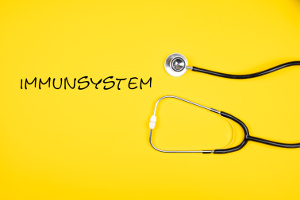 A panel of physicians and professors collaborating with the Swiss Society for Nutrition (SSN) recently reviewed the scientific evidence on the role of micronutrients in supporting a well-functioning immune defense for optimal health with particular focus on viral infections related to COVID-19. They conclude that there is widespread lack of vitamin C, vitamin D, selenium, zinc, and omega-3 fatty acids, all of which are crucial nutrients for the immune system. These deficiencies contribute to new waves of COVID-19 and can cause the infections to become life-threatening. The panel calls for immediate action with relevant focus on diet and supplements.
A panel of physicians and professors collaborating with the Swiss Society for Nutrition (SSN) recently reviewed the scientific evidence on the role of micronutrients in supporting a well-functioning immune defense for optimal health with particular focus on viral infections related to COVID-19. They conclude that there is widespread lack of vitamin C, vitamin D, selenium, zinc, and omega-3 fatty acids, all of which are crucial nutrients for the immune system. These deficiencies contribute to new waves of COVID-19 and can cause the infections to become life-threatening. The panel calls for immediate action with relevant focus on diet and supplements.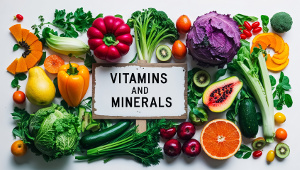
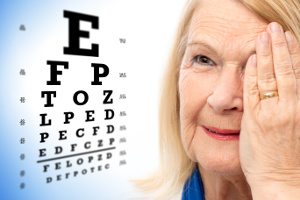
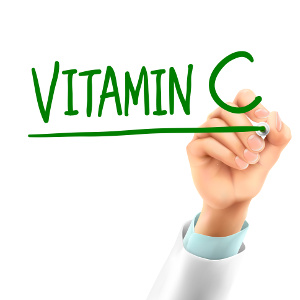 Cystic fibrosis is a serious condition that affects the respiratory tract. It comes with chronic inflammation and sticky mucous and is known to cause early death. Patients who take high-dosed vitamin C supplements seem to make better use of vitamin E, which is also an antioxidant, and the result is less inflammation. This was seen in a study from Oregon State University. The scientists mention that taking extra vitamin C is also relevant for smokers and patients with metabolic disease.
Cystic fibrosis is a serious condition that affects the respiratory tract. It comes with chronic inflammation and sticky mucous and is known to cause early death. Patients who take high-dosed vitamin C supplements seem to make better use of vitamin E, which is also an antioxidant, and the result is less inflammation. This was seen in a study from Oregon State University. The scientists mention that taking extra vitamin C is also relevant for smokers and patients with metabolic disease.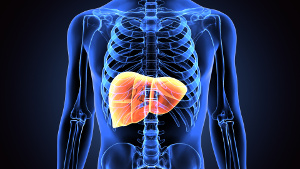 Non-alcoholic fatty liver disease (NAFLD) is a liver disease that is spreading like a bushfire. NAFLD is associated with obesity and metabolic syndrome, which is an early stage of type 2 diabetes. What you eat plays a major role, and a large Chinese study has actually demonstrated that higher dietary intake of vitamin C can improve blood sugar levels and the liver function. It is also wise to lower your intake of carbohydrates, especially fructose that can put a huge strain on the liver and turn it into a virtual “fat factory”.
Non-alcoholic fatty liver disease (NAFLD) is a liver disease that is spreading like a bushfire. NAFLD is associated with obesity and metabolic syndrome, which is an early stage of type 2 diabetes. What you eat plays a major role, and a large Chinese study has actually demonstrated that higher dietary intake of vitamin C can improve blood sugar levels and the liver function. It is also wise to lower your intake of carbohydrates, especially fructose that can put a huge strain on the liver and turn it into a virtual “fat factory”.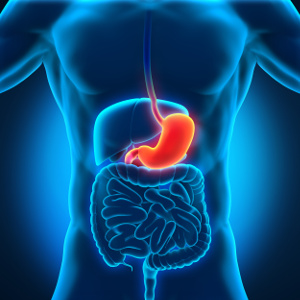
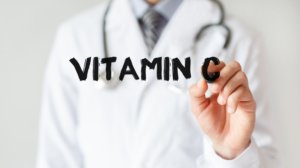 Blood poisoning, also called sepsis, is a life-threatening condition that requires immediate medical attention. A combination of high-dosed, intravenously administered vitamin C may, however, shorten the hospital stay and lower the risk of dying, according to a study that is published in Journal of the American Medical Association. The study supports earlier research where a combination of intravenous vitamin C and vitamin B1 delivered even better results. These are simple and inexpensive therapies that can save lives by supporting the immune system and limiting damage to the cardiovascular system, the lungs, and other tissues.
Blood poisoning, also called sepsis, is a life-threatening condition that requires immediate medical attention. A combination of high-dosed, intravenously administered vitamin C may, however, shorten the hospital stay and lower the risk of dying, according to a study that is published in Journal of the American Medical Association. The study supports earlier research where a combination of intravenous vitamin C and vitamin B1 delivered even better results. These are simple and inexpensive therapies that can save lives by supporting the immune system and limiting damage to the cardiovascular system, the lungs, and other tissues.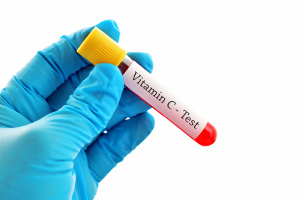 Chronic fatigue commonly follows in the wake of influenza, herpes, COVID-19, and other infections. The immune system does not function optimally, and the tiredness is caused by oxidative stress and inflammation. The condition is often accompanied by poor concentration, depression, and sleep disturbances. Oxidative stress is an imbalance between pro-inflammatory free radicals and protective antioxidants. Vitamin C happens to be one of the most potent antioxidants, and intravenous vitamin C therapy has been shown to reduce tiredness that follows after different types of virus infections, according to a review article in the scientific journal Nutrients. Here, the scientists also write about intravenous vitamin C therapy in connection with chronic fatigue syndrome following COVID-19 infections.
Chronic fatigue commonly follows in the wake of influenza, herpes, COVID-19, and other infections. The immune system does not function optimally, and the tiredness is caused by oxidative stress and inflammation. The condition is often accompanied by poor concentration, depression, and sleep disturbances. Oxidative stress is an imbalance between pro-inflammatory free radicals and protective antioxidants. Vitamin C happens to be one of the most potent antioxidants, and intravenous vitamin C therapy has been shown to reduce tiredness that follows after different types of virus infections, according to a review article in the scientific journal Nutrients. Here, the scientists also write about intravenous vitamin C therapy in connection with chronic fatigue syndrome following COVID-19 infections. Critically ill patients often suffer from inflammation and oxidative stress, which is an imbalance between harmful free radicals and protective antioxidants. In worst case, this may result in tissue damage and organ failure. It turns out vitamin C is a powerful antioxidant with a therapeutic potential. According to a new systematic review article and meta-analysis, therapy with large quantities of intravenous vitamin C helps shorten the duration of the hospital stay for critically ill patients without any side effects.
Critically ill patients often suffer from inflammation and oxidative stress, which is an imbalance between harmful free radicals and protective antioxidants. In worst case, this may result in tissue damage and organ failure. It turns out vitamin C is a powerful antioxidant with a therapeutic potential. According to a new systematic review article and meta-analysis, therapy with large quantities of intravenous vitamin C helps shorten the duration of the hospital stay for critically ill patients without any side effects.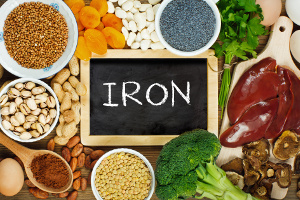 If you are suffering from enervating fatigue, problems with concentrating, lack of energy, paleness, shortness of breath, dizziness, cold intolerance, recurrent infections, anemia, or problems with your skin, hair, and nails, you may be lacking iron and you should have it checked. It is primarily women of childbearing age, seniors, and vegans who lack this essential mineral, but even infants, teenagers, athletes, and people who drink a lot of milk may become iron-deficient. In this article, you can read more about how to get enough iron from your diet – regardless if you are a carnivore, pescetarian, or vegan. Also, you will find tips on how to increase your iron absorption.
If you are suffering from enervating fatigue, problems with concentrating, lack of energy, paleness, shortness of breath, dizziness, cold intolerance, recurrent infections, anemia, or problems with your skin, hair, and nails, you may be lacking iron and you should have it checked. It is primarily women of childbearing age, seniors, and vegans who lack this essential mineral, but even infants, teenagers, athletes, and people who drink a lot of milk may become iron-deficient. In this article, you can read more about how to get enough iron from your diet – regardless if you are a carnivore, pescetarian, or vegan. Also, you will find tips on how to increase your iron absorption. Vitamin C is important for the immune system, the nervous system, energy turnover, connective tissue, hormone production, and numerous biochemical processes. Vitamin C is also an important antioxidant that protects cells and tissues against oxidative stress and hyperinflammation that cause virus infections to become dangerous. According to a new review article that is published in Nutrients, lack of vitamin C is widespread in underdeveloped, low-income countries but also occurs in industrialized countries with higher income levels. Also, the majority of Danes fail to consume the recommended amount of fruit and vegetables that are rich in vitamin C, plus a number of factors can increase the need for the nutrient.
Vitamin C is important for the immune system, the nervous system, energy turnover, connective tissue, hormone production, and numerous biochemical processes. Vitamin C is also an important antioxidant that protects cells and tissues against oxidative stress and hyperinflammation that cause virus infections to become dangerous. According to a new review article that is published in Nutrients, lack of vitamin C is widespread in underdeveloped, low-income countries but also occurs in industrialized countries with higher income levels. Also, the majority of Danes fail to consume the recommended amount of fruit and vegetables that are rich in vitamin C, plus a number of factors can increase the need for the nutrient.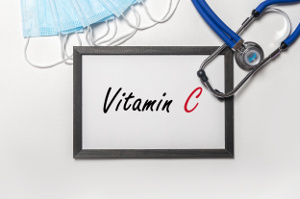 Vitamin C has a vital role in our immune defense, and having low blood levels of the nutrient can affect the severity of infections such as COVID-19 and influenza, according to a review article published in Aging and Disease. The scientists behind the study also refer to other studies that have looked at large doses of intravenous vitamin C given to patients with sepsis and life-threatening COVID-19 infections. Vitamin C deficiency is a widespread problem for various reasons and that only adds to the problem.
Vitamin C has a vital role in our immune defense, and having low blood levels of the nutrient can affect the severity of infections such as COVID-19 and influenza, according to a review article published in Aging and Disease. The scientists behind the study also refer to other studies that have looked at large doses of intravenous vitamin C given to patients with sepsis and life-threatening COVID-19 infections. Vitamin C deficiency is a widespread problem for various reasons and that only adds to the problem. Brain cells (neurons) contain comparatively large concentrations of vitamin C, a nutrient that helps us maintain a healthy nervous system in a number of different ways. Scientists have discovered that lack of vitamin C can affect the brain’s neural signaling. Consequently, a vitamin C deficiency can impair memory and other cognitive skills in seniors. This was demonstrated in a study from Flinders University in Australia. Mild cognitive impairment is widespread among older people and represents an early stage of dementia so it is important to get plenty of vitamin C every day throughout life.
Brain cells (neurons) contain comparatively large concentrations of vitamin C, a nutrient that helps us maintain a healthy nervous system in a number of different ways. Scientists have discovered that lack of vitamin C can affect the brain’s neural signaling. Consequently, a vitamin C deficiency can impair memory and other cognitive skills in seniors. This was demonstrated in a study from Flinders University in Australia. Mild cognitive impairment is widespread among older people and represents an early stage of dementia so it is important to get plenty of vitamin C every day throughout life. Periodontal is the leading global cause of tooth loss. It is a problem to prevent and to treat this condition because large population groups are neither able to nor used to taking proper care of their teeth and because it is expensive to see a dentist. A group of Australian scientists have decided to take a closer look at vitamin C’s role in dental health and determine how important it is to get enough vitamin C from the diet and from supplements. Another substance is important for preventing periodontal disease. You can read more about that in the article.
Periodontal is the leading global cause of tooth loss. It is a problem to prevent and to treat this condition because large population groups are neither able to nor used to taking proper care of their teeth and because it is expensive to see a dentist. A group of Australian scientists have decided to take a closer look at vitamin C’s role in dental health and determine how important it is to get enough vitamin C from the diet and from supplements. Another substance is important for preventing periodontal disease. You can read more about that in the article. It is commonly known that pregnant diabetics have an increased risk of developing an eye disease called diabetic retinopathy. The diet plays a major role and it appears that a vitamin C deficiency increases the risk, according to a Danish study of pregnant type 1 diabetics that is published in the journal Antioxidants. The authors also mention that vitamin C is a vital antioxidant that protects cells and tissues against oxidative stress caused by free radicals.
It is commonly known that pregnant diabetics have an increased risk of developing an eye disease called diabetic retinopathy. The diet plays a major role and it appears that a vitamin C deficiency increases the risk, according to a Danish study of pregnant type 1 diabetics that is published in the journal Antioxidants. The authors also mention that vitamin C is a vital antioxidant that protects cells and tissues against oxidative stress caused by free radicals.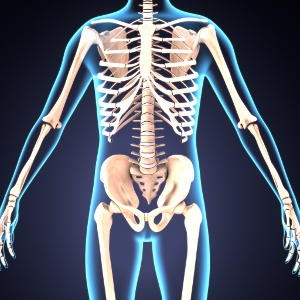 Vitamin C is important for bone density. A deficiency of the nutrient actually increases the risk of osteoporosis. Patients suffering from Crohn’s disease, ulcerative colitis, and other inflammatory bowel diseases often lack vitamin C and that adds even more to their risk. It is also a problem when normal, healthy people eat a vitamin C-deficient diet, and it becomes even more critical when people with chronic bowel diseases eat a diet with too little vitamin C. Vitamin C has a number of other functions in the body that are of importance to the immune system and the gut flora. Also, our genes for utilizing vitamin C play a role, according to a new study from Poznan University and Human Genetics Polish Academy of Sciences in Poland.
Vitamin C is important for bone density. A deficiency of the nutrient actually increases the risk of osteoporosis. Patients suffering from Crohn’s disease, ulcerative colitis, and other inflammatory bowel diseases often lack vitamin C and that adds even more to their risk. It is also a problem when normal, healthy people eat a vitamin C-deficient diet, and it becomes even more critical when people with chronic bowel diseases eat a diet with too little vitamin C. Vitamin C has a number of other functions in the body that are of importance to the immune system and the gut flora. Also, our genes for utilizing vitamin C play a role, according to a new study from Poznan University and Human Genetics Polish Academy of Sciences in Poland.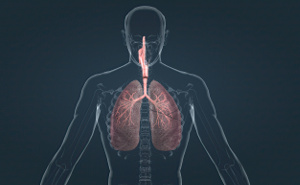 Vitamin C is of vital importance to our immune defense, and it serves as a powerful antioxidant to protect cells and tissues. Large quantities of vitamin C are able to improve lung function in patients with chronic obstructive pulmonary disease (COPD) and other chronic lung disorders. This was demonstrated in a large meta-analysis published in International Journal of Chronic Obstructive Pulmonary Disease.
Vitamin C is of vital importance to our immune defense, and it serves as a powerful antioxidant to protect cells and tissues. Large quantities of vitamin C are able to improve lung function in patients with chronic obstructive pulmonary disease (COPD) and other chronic lung disorders. This was demonstrated in a large meta-analysis published in International Journal of Chronic Obstructive Pulmonary Disease.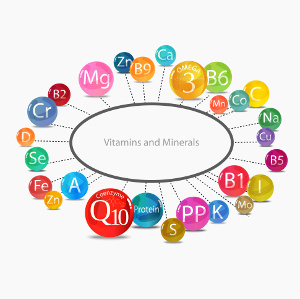 There are around 750,000 people in Denmark who take several medical drugs per day, and the number of users is on the rise. What many people are unaware of is that different drugs can disrupt the body’s ability to absorb or utilize one or several nutrients, especially things like B vitamins, vitamin C, vitamin D, vitamin K2, magnesium, potassium, calcium, zinc, iron, and coenzyme Q10. It is therefore vital to get sufficient amounts of the mentioned nutrients to reduce the risk of adverse effects.
There are around 750,000 people in Denmark who take several medical drugs per day, and the number of users is on the rise. What many people are unaware of is that different drugs can disrupt the body’s ability to absorb or utilize one or several nutrients, especially things like B vitamins, vitamin C, vitamin D, vitamin K2, magnesium, potassium, calcium, zinc, iron, and coenzyme Q10. It is therefore vital to get sufficient amounts of the mentioned nutrients to reduce the risk of adverse effects.
 During World War II, food supplies were scarce. At one point, English researchers wanted to find out how little vitamin C it would take to prevent the potentially lethal disease, scurvy. In order to do that, they carried out a drastic experiment that later served as basis for our current vitamin C recommendations. However, a recent analysis of this old study has revealed that the actual need for vitamin C is a lot greater than previously thought, suggesting that WHO raise the recommended daily intake level. The question is how much vitamin C do we really need and what good does the vitamin do?
During World War II, food supplies were scarce. At one point, English researchers wanted to find out how little vitamin C it would take to prevent the potentially lethal disease, scurvy. In order to do that, they carried out a drastic experiment that later served as basis for our current vitamin C recommendations. However, a recent analysis of this old study has revealed that the actual need for vitamin C is a lot greater than previously thought, suggesting that WHO raise the recommended daily intake level. The question is how much vitamin C do we really need and what good does the vitamin do?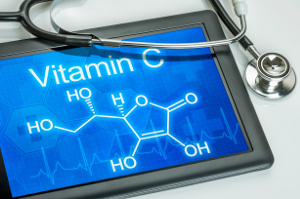 Although the course of disease for most people with COVID-19 is rather mild, the greatest concern is the life-threatening complications in the respiratory tract caused by oxidative stress and cytokine storm where the immune system attacks healthy tissue. Scientists are busy looking for new therapies such as intravenous vitamin C that is about to be tested in a new Chinese placebo-controlled study, according to an article that is published in Critical Care. Several researchers say that vitamin C from dietary sources and supplements has a preventive effect because it strengthens and regulates the immune defense in the respiratory tract. The same is the case with vitamin D and selenium.
Although the course of disease for most people with COVID-19 is rather mild, the greatest concern is the life-threatening complications in the respiratory tract caused by oxidative stress and cytokine storm where the immune system attacks healthy tissue. Scientists are busy looking for new therapies such as intravenous vitamin C that is about to be tested in a new Chinese placebo-controlled study, according to an article that is published in Critical Care. Several researchers say that vitamin C from dietary sources and supplements has a preventive effect because it strengthens and regulates the immune defense in the respiratory tract. The same is the case with vitamin D and selenium. The condition of our skin means a lot to our appearance and health, and being deficient in one or several nutrients can cause premature skin ageing. Also, things like poor wound healing, acne, herpes infections, yeast infections, eczema, psoriasis, and other skin disorders may occur. In a review article published in Medicina, scientists have looked at the role of vitamins A, C, E, D, and biotin plus omega-3 fatty acids in skin health. Studies suggest that selenium and zinc may also be important for healthy skin and anti-ageing. If you don’t get enough of these nutrients or if you simply have an increased need for them, you may consider taking a supplement.
The condition of our skin means a lot to our appearance and health, and being deficient in one or several nutrients can cause premature skin ageing. Also, things like poor wound healing, acne, herpes infections, yeast infections, eczema, psoriasis, and other skin disorders may occur. In a review article published in Medicina, scientists have looked at the role of vitamins A, C, E, D, and biotin plus omega-3 fatty acids in skin health. Studies suggest that selenium and zinc may also be important for healthy skin and anti-ageing. If you don’t get enough of these nutrients or if you simply have an increased need for them, you may consider taking a supplement. Everyone knows that exercise and sports activities are good for you, but overtraining and high-performance sport may increase your risk of oxidative stress, which is associated with acute injuries, inflammation and later risk of neurodegenerative disease such as Alzheimer’s disease and ALS (amyotrophic lateral sclerosis). It is therefore a good idea to take antioxidant supplements, as this may help prevent both acute and chronic injuries. A comprehensive article published in the science journal Nutrients looks closer at the relation between free radicals and antioxidants, which have different functions in connection with various types of physical activity. This is especially the case with vitamins A, C, and E plus selenium and zinc. It is also important to make sure to get enough vitamin D and omega-3 fatty acids for counteracting inflammation and oxidative stress.
Everyone knows that exercise and sports activities are good for you, but overtraining and high-performance sport may increase your risk of oxidative stress, which is associated with acute injuries, inflammation and later risk of neurodegenerative disease such as Alzheimer’s disease and ALS (amyotrophic lateral sclerosis). It is therefore a good idea to take antioxidant supplements, as this may help prevent both acute and chronic injuries. A comprehensive article published in the science journal Nutrients looks closer at the relation between free radicals and antioxidants, which have different functions in connection with various types of physical activity. This is especially the case with vitamins A, C, and E plus selenium and zinc. It is also important to make sure to get enough vitamin D and omega-3 fatty acids for counteracting inflammation and oxidative stress. Regular sport is good for you, whereas arduous training and high-performance sport can result in physical injuries, infections, chronic inflammation, and serious diseases due to oxidative stress. This phenomenon occurs as a result of the increased energy turnover, which produces an excess of free radicals that cause damage to cells and tissues. Oxidative stress is also associated with impaired performance, poor restitution, and faster ageing. Our only natural defense against free radicals is the presence of antioxidants, and it is especially things like vitamin C, vitamin E, selenium, zinc, Q10, omega-3 fatty acids, and turmeric that protect against oxidative damage and improve recovery time. According to a review article published in Nutrients, supplements with the right doses of different nutrients can also help boost your physical and mental performance.
Regular sport is good for you, whereas arduous training and high-performance sport can result in physical injuries, infections, chronic inflammation, and serious diseases due to oxidative stress. This phenomenon occurs as a result of the increased energy turnover, which produces an excess of free radicals that cause damage to cells and tissues. Oxidative stress is also associated with impaired performance, poor restitution, and faster ageing. Our only natural defense against free radicals is the presence of antioxidants, and it is especially things like vitamin C, vitamin E, selenium, zinc, Q10, omega-3 fatty acids, and turmeric that protect against oxidative damage and improve recovery time. According to a review article published in Nutrients, supplements with the right doses of different nutrients can also help boost your physical and mental performance. Scientists have discovered traces of antibiotic-resistant super bacteria (NDM-1) in the soil of Svalbard. This archipelago is located in the arctic ocean between the North Pole and Norway, several thousand kilometers from India where the bacteria was originally discovered. This is described in a study that is published in the science journal, Environment International. Bacteria with the resistance gene NDM-1 have now spread to a number of other countries and many people have lost their lives to them. Humans are also challenged by other antibiotic-resistant bacteria, and the British health authorities consider this to be a larger threat to humans than climate change. But what causes these bacteria to develop resistance? And what vitamins and minerals are particularly important for bolstering the immune system? After all, our immune defense is our only way of protecting ourselves if antibiotics fail to work.
Scientists have discovered traces of antibiotic-resistant super bacteria (NDM-1) in the soil of Svalbard. This archipelago is located in the arctic ocean between the North Pole and Norway, several thousand kilometers from India where the bacteria was originally discovered. This is described in a study that is published in the science journal, Environment International. Bacteria with the resistance gene NDM-1 have now spread to a number of other countries and many people have lost their lives to them. Humans are also challenged by other antibiotic-resistant bacteria, and the British health authorities consider this to be a larger threat to humans than climate change. But what causes these bacteria to develop resistance? And what vitamins and minerals are particularly important for bolstering the immune system? After all, our immune defense is our only way of protecting ourselves if antibiotics fail to work.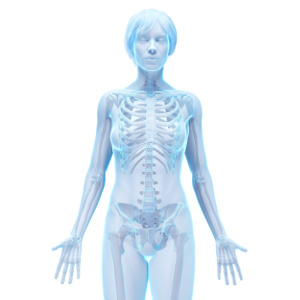
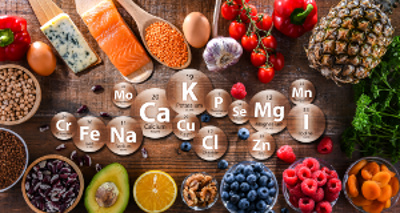
 Lack of vitamin C can cause bleeding from the gums, the eyes, and possibly even complicated internal bleeding, according to a study from the University of Washington. It is vital to get enough vitamin C from your diet because the nutrient is important for the collagen production, the immune defense, and numerous other functions. You may have an increased need for vitamin C if your gums bleed when you brush your teeth, if you bruise easily, or if you show other signs of lacking this essential nutrient.
Lack of vitamin C can cause bleeding from the gums, the eyes, and possibly even complicated internal bleeding, according to a study from the University of Washington. It is vital to get enough vitamin C from your diet because the nutrient is important for the collagen production, the immune defense, and numerous other functions. You may have an increased need for vitamin C if your gums bleed when you brush your teeth, if you bruise easily, or if you show other signs of lacking this essential nutrient. The diet’s content of vitamin C, vitamin B6, vitamin B12, folic acid, and other vitamins has a positive impact on our mental and physical health and well-being Lack of vitamins may even remedy depression and chronic pain, according to a Japanese study of seniors. The number of seniors worldwide is increasing with more and more people being affected by physical and mental disease. Therefore, scientists want to take a closer look at the diet and its influence on quality of life measured by different accounts.
The diet’s content of vitamin C, vitamin B6, vitamin B12, folic acid, and other vitamins has a positive impact on our mental and physical health and well-being Lack of vitamins may even remedy depression and chronic pain, according to a Japanese study of seniors. The number of seniors worldwide is increasing with more and more people being affected by physical and mental disease. Therefore, scientists want to take a closer look at the diet and its influence on quality of life measured by different accounts.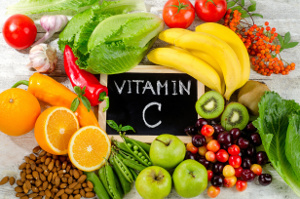

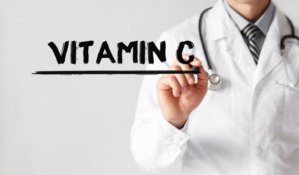 Intensive care units in hospitals offer treatment for critically ill patients, who are monitored and receive specialist care around the clock. It goes without saying that this type of medical attention is associated with both suffering and comes with a huge price tag. A whole new meta-analysis has shown that vitamin C supplementation is an inexpensive way to shorten the duration of intensive care hospitalization by eight percent. The reason is that vitamin C has a host of important functions in the body, including an ability to speed up the healing process.
Intensive care units in hospitals offer treatment for critically ill patients, who are monitored and receive specialist care around the clock. It goes without saying that this type of medical attention is associated with both suffering and comes with a huge price tag. A whole new meta-analysis has shown that vitamin C supplementation is an inexpensive way to shorten the duration of intensive care hospitalization by eight percent. The reason is that vitamin C has a host of important functions in the body, including an ability to speed up the healing process.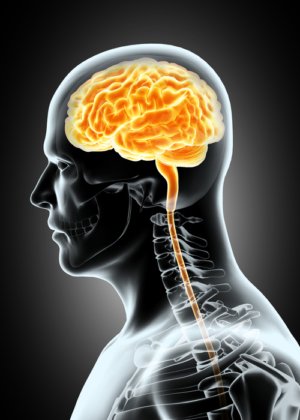 Most people think of vitamin C in connection with the immune defense, but as it turns out, the largest concentration of vitamin C is actually found in the brain. This is because vitamin C is enormously important for the energy turnover, the nervous system, and the cognitive skills, and this is described in a new review article. There is also evidence of widespread vitamin C deficiency, which may eventually impair cognitive skills and increase the risk of dementia and Alzheimer’s disease. If a pregnant woman lacks vitamin C, it can disrupt the development of the baby’s brain. There is a number of factors that increase our need for the nutrient, so the big question is how much do we need to secure optimal brain function throughout life?
Most people think of vitamin C in connection with the immune defense, but as it turns out, the largest concentration of vitamin C is actually found in the brain. This is because vitamin C is enormously important for the energy turnover, the nervous system, and the cognitive skills, and this is described in a new review article. There is also evidence of widespread vitamin C deficiency, which may eventually impair cognitive skills and increase the risk of dementia and Alzheimer’s disease. If a pregnant woman lacks vitamin C, it can disrupt the development of the baby’s brain. There is a number of factors that increase our need for the nutrient, so the big question is how much do we need to secure optimal brain function throughout life? Older people with a high intake of vitamin C appear to have healthier skeletal muscle than those with lower intakes, according to a new study from the University of East Anglia in England. This is an important discovery because our natural loss of muscle mass begins in our forties and starts to accelerate after we pass the age of 65 years. The phenomenon is known as sarcopenia and is one of the main reasons why older people become increasingly fragile and susceptible to disease. The authors behind the study believe that it is particularly important for middle-aged and older people to get plenty of vitamin C from their diets or by taking supplements. As a bonus effect, vitamin C also protects against infections and cardiovascular diseases, which also typically affect seniors.
Older people with a high intake of vitamin C appear to have healthier skeletal muscle than those with lower intakes, according to a new study from the University of East Anglia in England. This is an important discovery because our natural loss of muscle mass begins in our forties and starts to accelerate after we pass the age of 65 years. The phenomenon is known as sarcopenia and is one of the main reasons why older people become increasingly fragile and susceptible to disease. The authors behind the study believe that it is particularly important for middle-aged and older people to get plenty of vitamin C from their diets or by taking supplements. As a bonus effect, vitamin C also protects against infections and cardiovascular diseases, which also typically affect seniors.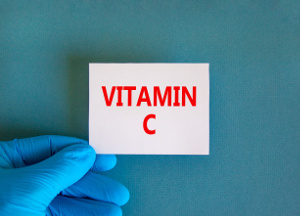
 Air pollution is a serious health threat that affects the entire world. Previous studies show that it increases the risk of cardiovascular disease, among other things. We need new strategies for protection, and a recent Chinese study conveniently reveals that supplementation with vitamin C can protect the cardiovascular system against oxidative stress and other harmful impacts from air pollution. What we need to find out is how much vitamin C it takes to obtain a therapeutic effect.
Air pollution is a serious health threat that affects the entire world. Previous studies show that it increases the risk of cardiovascular disease, among other things. We need new strategies for protection, and a recent Chinese study conveniently reveals that supplementation with vitamin C can protect the cardiovascular system against oxidative stress and other harmful impacts from air pollution. What we need to find out is how much vitamin C it takes to obtain a therapeutic effect. Telomeres are protective caps at the end of our DNA strands. You can compare them to the small plastic aglets that prevent shoelaces from unraveling. For each time a cell divides, the telomeres become shorter. The length of telomeres conveniently indicates our biological age. Diet plays a role and according to a large population study, vitamin C intake is linked to telomere length. The same is the case with Q10 and selenium, according to Swedish research. Vitamin C, Q10, and selenium serve as unique antioxidants that protect the telomeres and the cells against damage caused by oxidative stress.
Telomeres are protective caps at the end of our DNA strands. You can compare them to the small plastic aglets that prevent shoelaces from unraveling. For each time a cell divides, the telomeres become shorter. The length of telomeres conveniently indicates our biological age. Diet plays a role and according to a large population study, vitamin C intake is linked to telomere length. The same is the case with Q10 and selenium, according to Swedish research. Vitamin C, Q10, and selenium serve as unique antioxidants that protect the telomeres and the cells against damage caused by oxidative stress.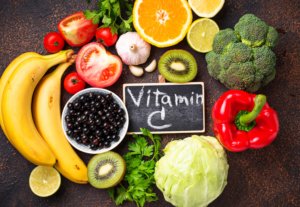 Vitamin C plays a key role in our energy turnover, immune defense, connective tissue, wound healing, antioxidant protection, cardiovascular health, brain, and a host of different enzyme processes. An English population study has shown that having low blood levels of vitamin C is associated with poor physical condition and that may spawn a number of different symptoms. The researchers behind the study also found that people from lower social classes, smokers, men, and older people in general are more likely to be deficient. Alcohol abuse, sugar abuse, stress, and poisoning may also increase the need for the nutrient, which means that many people may benefit from taking a supplement or improving their diet. The big question is how much vitamin C do we actually need for optimal health?
Vitamin C plays a key role in our energy turnover, immune defense, connective tissue, wound healing, antioxidant protection, cardiovascular health, brain, and a host of different enzyme processes. An English population study has shown that having low blood levels of vitamin C is associated with poor physical condition and that may spawn a number of different symptoms. The researchers behind the study also found that people from lower social classes, smokers, men, and older people in general are more likely to be deficient. Alcohol abuse, sugar abuse, stress, and poisoning may also increase the need for the nutrient, which means that many people may benefit from taking a supplement or improving their diet. The big question is how much vitamin C do we actually need for optimal health? It is vital to take good care of your eyes throughout life to maintain good vision. Our eyes need a number of different vitamins, minerals, and fatty acids that are important for cellular function and for protecting against oxidative stress. In this article, you can read more about vitamin A, vitamin C, vitamin E, B vitamins, zinc, selenium, omega-3 fatty acids, and Q10 and their vital role in maintaining healthy vision. We will also look at certain antioxidants that are found in eggs, salmon, spinach, broccoli, red bell pepper, and blueberries.
It is vital to take good care of your eyes throughout life to maintain good vision. Our eyes need a number of different vitamins, minerals, and fatty acids that are important for cellular function and for protecting against oxidative stress. In this article, you can read more about vitamin A, vitamin C, vitamin E, B vitamins, zinc, selenium, omega-3 fatty acids, and Q10 and their vital role in maintaining healthy vision. We will also look at certain antioxidants that are found in eggs, salmon, spinach, broccoli, red bell pepper, and blueberries. Some people prefer to eat raw vegetables in combination with meat or fish or as entirely raw vegan diets. They believe it is healthier and delivers more energy. But the truth is that some vegetables are healthier and provide more antioxidants if you heat them. That’s the case with tomatoes, bell pepper, carrots, spinach, and mushrooms. And remember that raw mushrooms contain toxins that are broken down by cooking.
Some people prefer to eat raw vegetables in combination with meat or fish or as entirely raw vegan diets. They believe it is healthier and delivers more energy. But the truth is that some vegetables are healthier and provide more antioxidants if you heat them. That’s the case with tomatoes, bell pepper, carrots, spinach, and mushrooms. And remember that raw mushrooms contain toxins that are broken down by cooking. "After about one week of taking the Q10 supplement I could feel a huge difference," says 23-year old Alan Piccini, who has been suffering from extreme fatigue and muscle aches ever since he was a child.
"After about one week of taking the Q10 supplement I could feel a huge difference," says 23-year old Alan Piccini, who has been suffering from extreme fatigue and muscle aches ever since he was a child. “Taking capsules with co-enzyme Q10 has freed me of the severe side effects of my cholesterol lowering medicine,” Mrs Franken explains.
“Taking capsules with co-enzyme Q10 has freed me of the severe side effects of my cholesterol lowering medicine,” Mrs Franken explains.